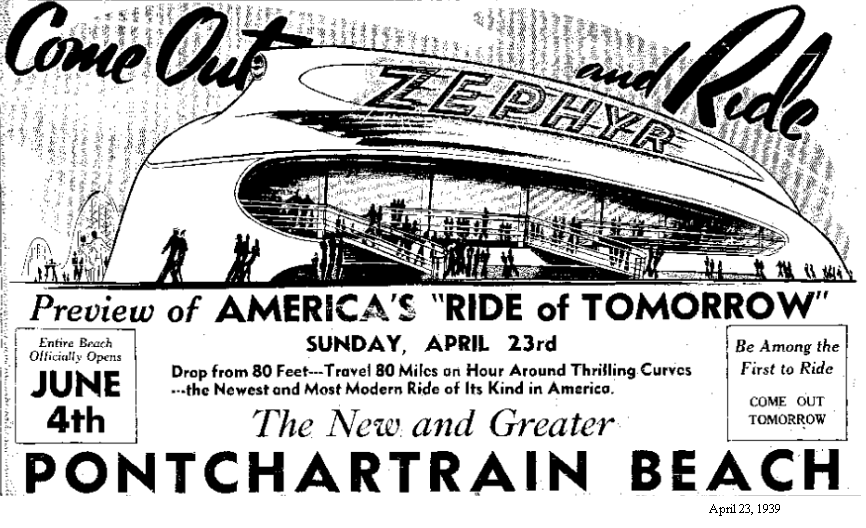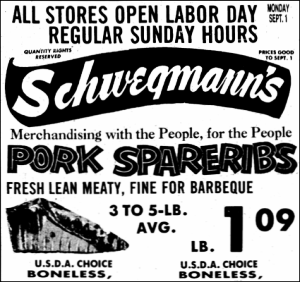|
Today in New Orleans History |
|
|
June 3


 During the 1920s visitors entering City Parkat the Pizzati Gate on City
Park Avenue would be greeted by these one-hundred year-old bare-breasted ladies (left) on Anseman Avenue. They had originally
hovered high above the main entrance to the New Orleans Cotton Exchange building (above) which
was built in 1823 but being readied for demolition in 1920. The ladies were acquired by the
park along with the granite caryatids which flanked the exchange's door and the standing figure between the two ladies
in the photograph. Their tenure in the park was brief – some citizens were outraged. The
ladies went on to reside at Metairie Cemetery (they were later destroyed) and the caryatids can
still be seen near the cemeteries on City Park Avenue. The fate of the top center figure
is unknown. Photo from the New Orleans Public Library. Text from New Orleans City Park (Images of America by Catherine Campanella  

To receive an update for each day in New Orleans
history, join our facebook page
- Today in New Orleans History
Tweet
|
|
|

To receive an update for each day in New Orleans history,
join our facebook page - Today in New
Orleans History.
Analytics |



